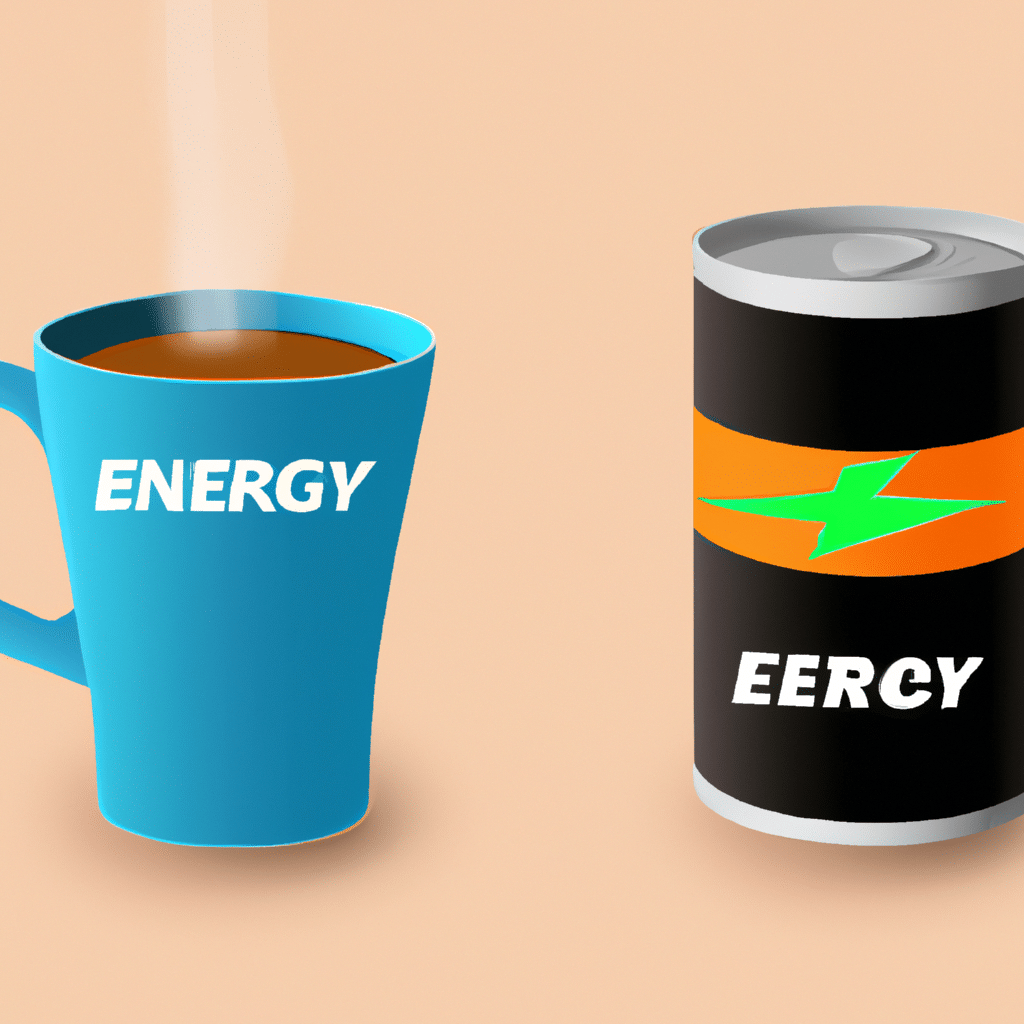In the fast-paced world we live in, finding ways to boost productivity and sustain energy levels has become a top priority for many. As a result, the market is flooded with various options, such as coffee and energy drinks. These beverages claim to provide the much-needed energy and focus to help us power through our day. But which one is truly better? In this article, we will delve deep into the world of coffee and energy drinks, examining their effects on productivity and energy levels, and provide you with a comprehensive analysis to help you make an informed decision.

Understanding the Composition
Before we can compare the effects of coffee and energy drinks, it’s important to understand their composition. Coffee, derived from roasted coffee beans, contains caffeine — a natural stimulant that affects the central nervous system. Energy drinks, on the other hand, are carbonated beverages that often contain caffeine, along with other ingredients such as taurine, B-vitamins, and herbal extracts like guarana.
The Power of Caffeine
Caffeine is the primary component in both coffee and energy drinks that provides the desired energy boost. It works by blocking adenosine receptors in the brain, which reduces the feeling of tiredness and increases alertness. However, the caffeine content in these beverages can vary significantly.
A typical cup of coffee contains around 95 mg of caffeine, while energy drinks can contain anywhere from 80 to 300 mg per serving. The higher caffeine content in energy drinks may initially provide a more intense energy boost, but it can also lead to jitters, nervousness, and even insomnia. Coffee, on the other hand, offers a more moderate caffeine content that can be better tolerated by some individuals.
The Role of Sugar and Calories
In addition to caffeine, energy drinks often contain high amounts of sugar and calories. While sugar can provide a quick burst of energy, it is followed by a crash that can leave you feeling even more tired than before. Moreover, excessive sugar consumption can have negative health effects, including weight gain and an increased risk of chronic diseases.
Coffee, when consumed without added sugars or creamers, is virtually calorie-free. This makes it a suitable choice for those watching their calorie intake or trying to maintain a healthy weight. Additionally, coffee contains antioxidants that have been linked to various health benefits, such as reducing the risk of certain diseases.
The Impact on Productivity
When it comes to productivity, both coffee and energy drinks can provide a temporary boost. The caffeine in these beverages stimulates the release of dopamine and adrenaline, which enhances focus, attention, and cognitive function. This can be particularly useful when tackling tasks that require mental acuity and concentration.
However, it’s important to note that the effects of caffeine are not long-lasting. The initial surge of energy is often followed by a crash, leaving you feeling fatigued and less productive. In this regard, coffee tends to have a more gradual and sustained effect, whereas energy drinks can lead to a more pronounced and short-lived energy spike.
Considerations for Sustained Energy Levels
While coffee and energy drinks may offer a temporary energy boost, sustaining energy levels throughout the day requires a holistic approach. Factors such as quality sleep, regular exercise, and a balanced diet play crucial roles in maintaining optimal energy levels.
Coffee, when consumed in moderation, can be a part of a healthy lifestyle. Its lower calorie content and potential health benefits make it a favorable choice for many. Energy drinks, on the other hand, should be consumed sparingly due to their high sugar and calorie content. It’s also worth noting that energy drinks are often associated with an increased risk of negative health effects, such as heart palpitations and high blood pressure.
Conclusion
In the battle of coffee vs energy drinks, the verdict ultimately comes down to personal preference and individual needs. While energy drinks may offer a more intense initial energy boost, they come with potential risks and side effects. Coffee, on the other hand, provides a more moderate and sustained energy lift, coupled with various health benefits.
To make the best choice for boosting productivity and sustaining energy levels, it’s important to consider the composition, caffeine content, sugar and calorie levels, as well as the overall impact on your health. Ultimately, adopting a balanced and healthy lifestyle that includes adequate sleep, regular exercise, and mindful consumption of caffeine can contribute to long-term sustained energy and productivity. So, grab your favorite cup of coffee or consider an energy drink in moderation, and power through your day with confidence.















